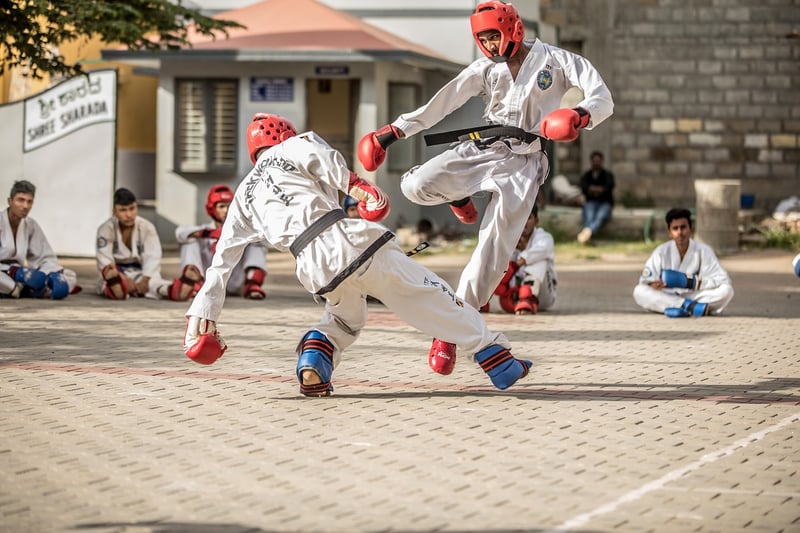Taekwondo
The Power of Self-Defense and Discipline in Taekwondo

Taekwondo, a traditional Korean martial art, goes beyond just physical movements. It encompasses the values of self-defense and discipline, making it a holistic practice for the mind, body, and spirit.
The Essence of Self-Defense
Self-defense is a crucial aspect of Taekwondo training. Practitioners learn various techniques to protect themselves in real-life situations. From basic blocks and strikes to advanced kicks and joint locks, Taekwondo equips individuals with the skills needed to defend against potential threats.
Benefits of Self-Defense Training:
- Boosts confidence and self-esteem
- Improves reflexes and coordination
- Enhances situational awareness
- Promotes physical fitness and agility
The Importance of Discipline
Discipline is at the core of Taekwondo philosophy. Practitioners adhere to strict training regimens, follow etiquette and protocols, and cultivate a strong sense of self-discipline. This mental fortitude extends beyond the training mat and into everyday life.
Aspects of Discipline in Taekwondo:
- Respect for instructors and peers
- Commitment to continuous improvement
- Focus and concentration during training
- Self-control and restraint in challenging situations
Integration of Self-Defense and Discipline
By combining self-defense techniques with discipline, Taekwondo practitioners develop a well-rounded skill set that not only enhances their physical abilities but also hones their mental resilience. The harmony between self-defense and discipline creates a balanced martial artist capable of overcoming obstacles both in and out of the training environment.
Embark on a journey of self-discovery and empowerment through the practice of Taekwondo, where self-defense and discipline converge to shape individuals into confident, disciplined, and resilient martial artists.
